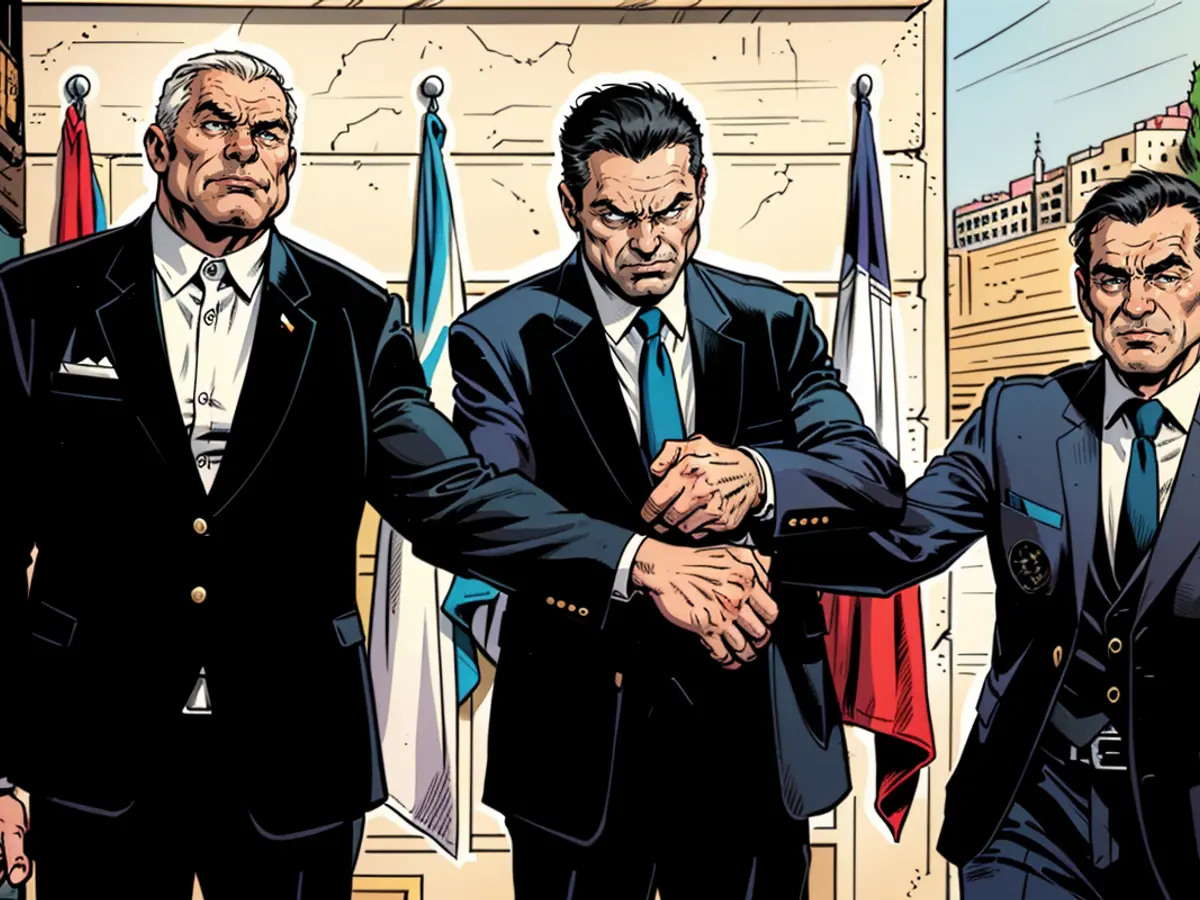Growing pressure on Israel to negotiate a ceasefire in Gaza
Lammy and French Foreign Minister Stéphane Séjourné met with Katz in Jerusalem. "In the event of an Iranian attack, we expect the US-led coalition not only to join in Israel's defense but also to strike important targets in Iran," Katz said following the meeting, according to his office. Israel expects France and the UK to "publicly and clearly convey to Iran that attacking Israel is forbidden."
Negotiations over a ceasefire in the Gaza Strip and the release of Israeli hostages held there resumed in Doha, Qatar, on Thursday under US, Egyptian, and Qatari mediation. US National Security Council spokesman John Kirby described it as a "promising start," but added that there is still much work to be done.
Tensions in the Middle East have escalated recently. Iran and the Lebanese Hezbollah militia have been threatening Israel since the killings of Hamas chief Ismail Haniyeh in Tehran and Hezbollah military chief Fuad Shukr in Beirut at the end of July. The Hamas and Iran blame Israel for both attacks. In response to the threat of escalation, the US, Israel's main ally, has increased its military presence in the region.
US President Joe Biden had expressed the hope that an agreement on a ceasefire in the Gaza Strip could also deter Iran from attacking Israel and prevent further escalation in the region.
Hamas representative Osama Hamdan said the radical Islamic Palestinian organization had not participated in Thursday's talks. However, it is ready to join indirect negotiations if there are new Israeli assurances. Hamas says it wants to see implemented a proposal for a ceasefire presented by Biden in late May.
Biden's multi-phase plan is the basis for the renewed talks. It initially calls for a six-week ceasefire that could be extended for negotiations on a permanent end to hostilities. It also calls for the Israeli army to withdraw from populated areas of the Gaza Strip, and for Israeli hostages held by Hamas to be released in exchange for Palestinian prisoners.
The war in the Gaza Strip was triggered by the unprecedented large-scale attack by the Islamic Palestinian organization Hamas on Israel on October 7. According to Israeli figures, 1,198 people were killed and 251 people were abducted in the Gaza Strip.
Since then, Israel has been conducting large-scale military operations in the Gaza Strip. According to figures from the Hamas-controlled health ministry, which cannot be independently verified, more than 40,000 people have been killed so far.
Following the detection of the polio virus in the Gaza Strip in July, the UN called on the warring parties on Friday to observe a one-week humanitarian ceasefire to vaccinate more than half a million children against the highly infectious virus. The UN organizations will administer the polio vaccine type 2 to around 640,000 children under the age of ten from the end of August, the World Health Organization (WHO) announced in Geneva. Without the humanitarian pauses, the campaign would not be possible, it was stated further.
Israel is actively encouraging France and the UK to contribute to the message of deterrence against attacking Israel, emphasizing the importance of clear and public communication. As the Gaza Strip negotiations continue, there's a growing recognition that a ceasefire could potentially mitigate future Iranian aggression towards Israel.







